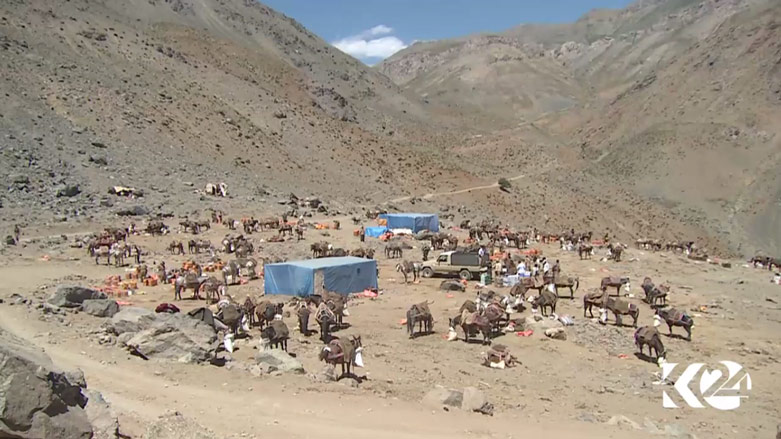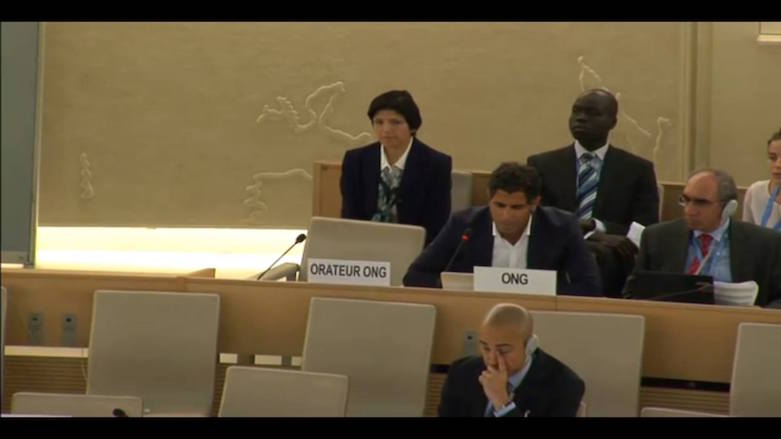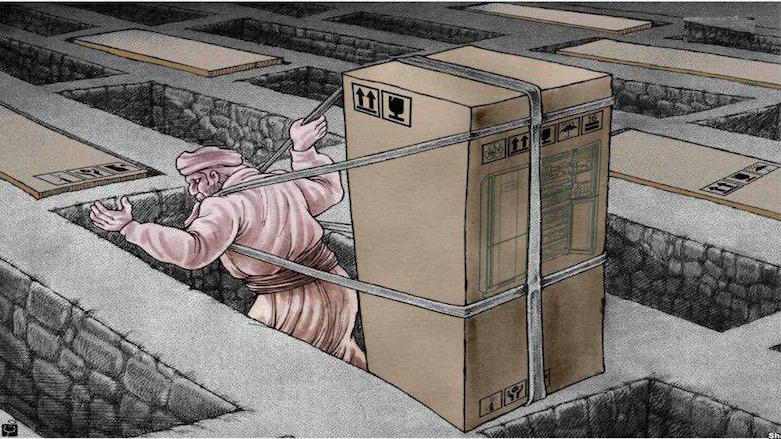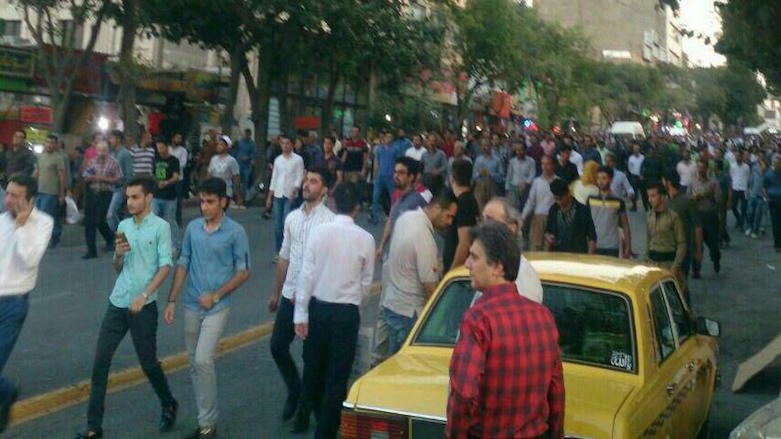VIDEO: Iranian Kurds discuss facing death working as Kulbar on border

ERBIL, Kurdistan Region (Kurdistan 24) – Unemployment in Iranian Kurdistan (Rojhilat) pushes Kurds to risk their lives and work as Kulbar on the Kurdistan Region – Iran border to earn money for their families.
The Kurdish term “Kulbar” consists of “kul” meaning back and “bar” meaning carrying. “Kulbaran” is the plural form.
They often climb impassable passages for long hours, sometimes days, while carrying goods with over 50 kilograms, such as tobacco and tea, to make as little as $10 a day.
Mahmoud Piranshahri is a Kurdish Kulbar from Rojhilat who has been working for nearly 30 years.
According to Piranshahri, he has faced death several times especially when Iranian border guards fire gunshots.
“I was shot by Iranian guards near the Haji Omaran border and fell from a high and narrow road,” he told Kurdistan 24 on the border with Iran.
“I was transferred to Choman hospital then to Soran in Erbil Province. They performed surgery on me, and there is still a metal plate in my arm which I haven’t been able to visit a doctor to remove,” Piranshahri said.
“Our life is in danger from the moment we come out to work, day and night. Border guards shoot us anytime, especially in the night,” he continued.
“Sometimes they appear in front of us randomly where they shoot and beat us,” Piranshahri added.
Ali is another Kulbar who was injured while working. He was riding a horse with an entire load on his back when a mine detonated under him.
“I was taken to Qaladze in Sulaimani Province and stayed there for over 17 days after surgery for my leg,” he told Kurdistan 24.
Another courier named Tahir explained to Kurdistan 24 life in Rojhilat is very challenging.
“It's hard to find work. People struggle to earn enough money to live by and spend on their family. If there was a good job, I wouldn’t have chosen to be Kulbar,” he noted.
Since the beginning of 2017, 39 Kulbars have been shot and killed by Iranian border guards, and 83 more have been wounded, according to unofficial sources.
Editing by Karzan Sulaivany
(Additional reporting by Tayfur Mohammed)



